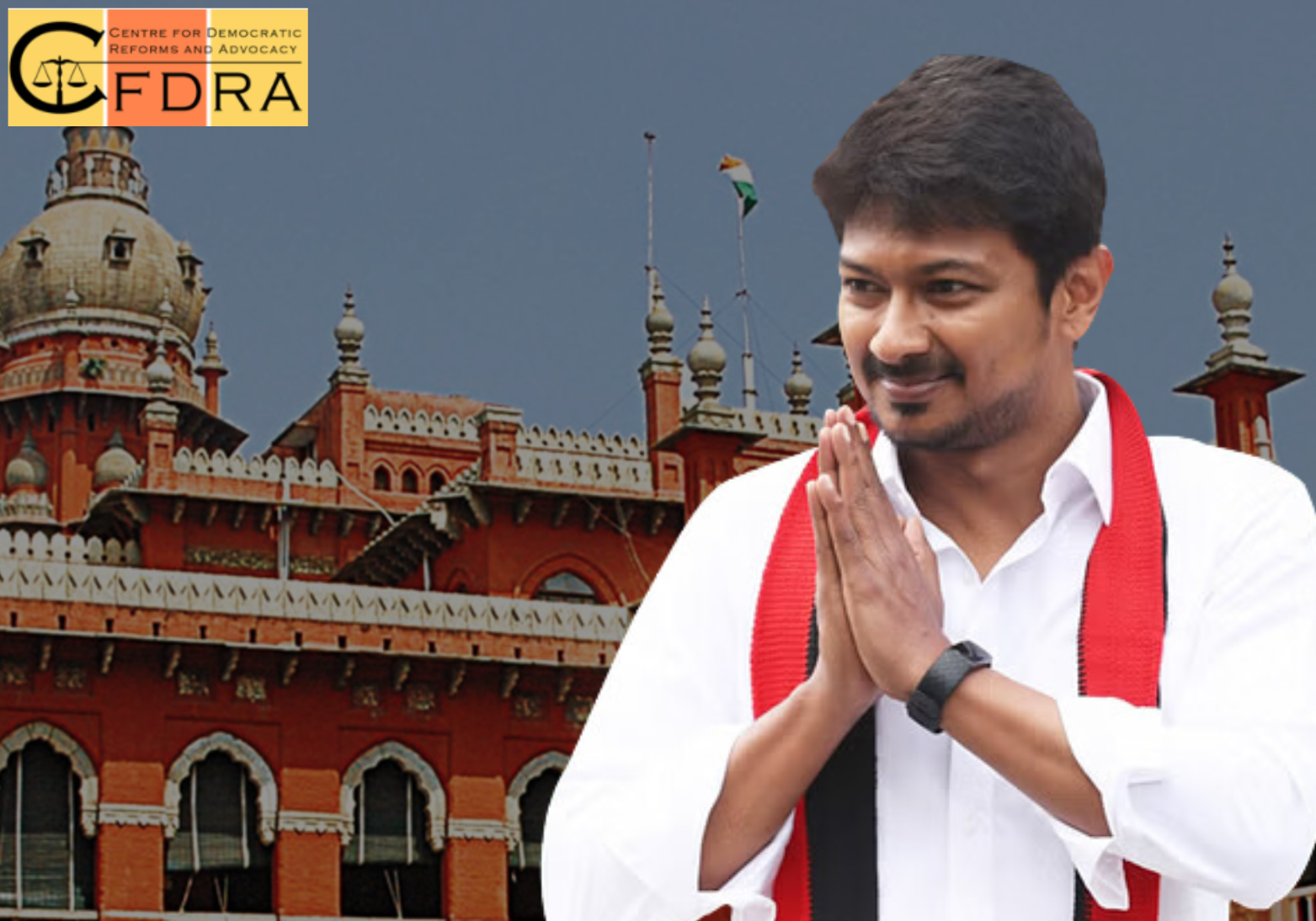Madras High Court Dismisses Plea Seeking Removal of Udhayanidhi Stalin and Others Over Remarks on Sanatana Dharma

In a significant legal development, the Madras High Court has dismissed a petition challenging the continuation of Tamil Nadu Ministers Udhayanidhi Stalin, Sekar Babu, and MP A Raja as legislators, following controversial remarks made against Sanatana Dharma. The court’s ruling, while declining to issue a writ of quo warranto against the ministers, comes amidst heightened scrutiny and public debate over their statements, which were deemed divisive and derogatory by some sections of society.
The controversy surrounding Minister Udhayanidhi Stalin‘s remarks on Sanatana Dharma, equating it to HIV, AIDS, Malaria, and other diseases, triggered a legal battle that culminated in the Madras High Court. While Justice Anita Sumanth criticized the statements made by the ministers, she refrained from removing them from their official positions, stating that no actionable disqualification had occurred thus far.
The court’s decision underscores the delicate balance between freedom of speech and the responsibilities of public office, particularly for those holding constitutional positions. While acknowledging the importance of ideological differences in politics, Justice Sumanth emphasized the need for constructive dialogue and adherence to constitutional principles, cautioning against statements that could incite division and discord.
The petitioners, represented by office bearers of the Hindu Munnani Organisation, argued that the ministers’ comments violated the fundamental duties enshrined in the Constitution, including the promotion of unity, integrity, and harmony among citizens. They contended that public officials, entrusted with upholding the sovereignty and spirit of brotherhood, should be held to a higher standard of accountability.
In response, Minister Udhayanidhi Stalin defended his remarks, asserting that they were aimed at combating caste-based discrimination rather than targeting any specific religious community. He cited Article 25 of the Constitution, which guarantees freedom of religion and the right to dissent, as justification for his statements.
Similarly, Minister Sekar Babu countered the petition, alleging ulterior motives behind the legal challenge, particularly in light of his efforts to address alleged encroachments on temple properties. He maintained that his participation in initiatives aimed at eradicating caste-based inequalities was consistent with constitutional values and did not warrant punitive action.
MP A Raja echoed these sentiments, highlighting the primacy of freedom of speech and expression in fostering meaningful discourse and societal progress. He underscored the expansive scope of Article 19(1)(a), which extends beyond mere dissemination of information to encompass dialogue aimed at societal development and progress.
The court’s directive for the ministers to provide the texts of their speeches and the materials relied upon underscores the importance of evidence-based discourse and responsible public statements, particularly from those in positions of authority. It reflects a commitment to upholding constitutional values while fostering inclusive and constructive dialogue in a diverse society.
As the legal battle unfolds, the Madras High Court’s ruling serves as a reminder of the complex interplay between freedom of speech, constitutional duties, and the responsibilities of public office. It underscores the importance of exercising restraint and discretion in public discourse, particularly on sensitive issues that have the potential to divide communities and undermine social cohesion.
Do you want to publish your own book?
We will help you get the best options for book publishing related services in India that helps you to self publish your book professionally. Complete set of publishing services. From designing book covers to publishing, promotion to distribution we provide them all. Click here to get free call back from our team consulting you regarding the publishing costs and the process.



